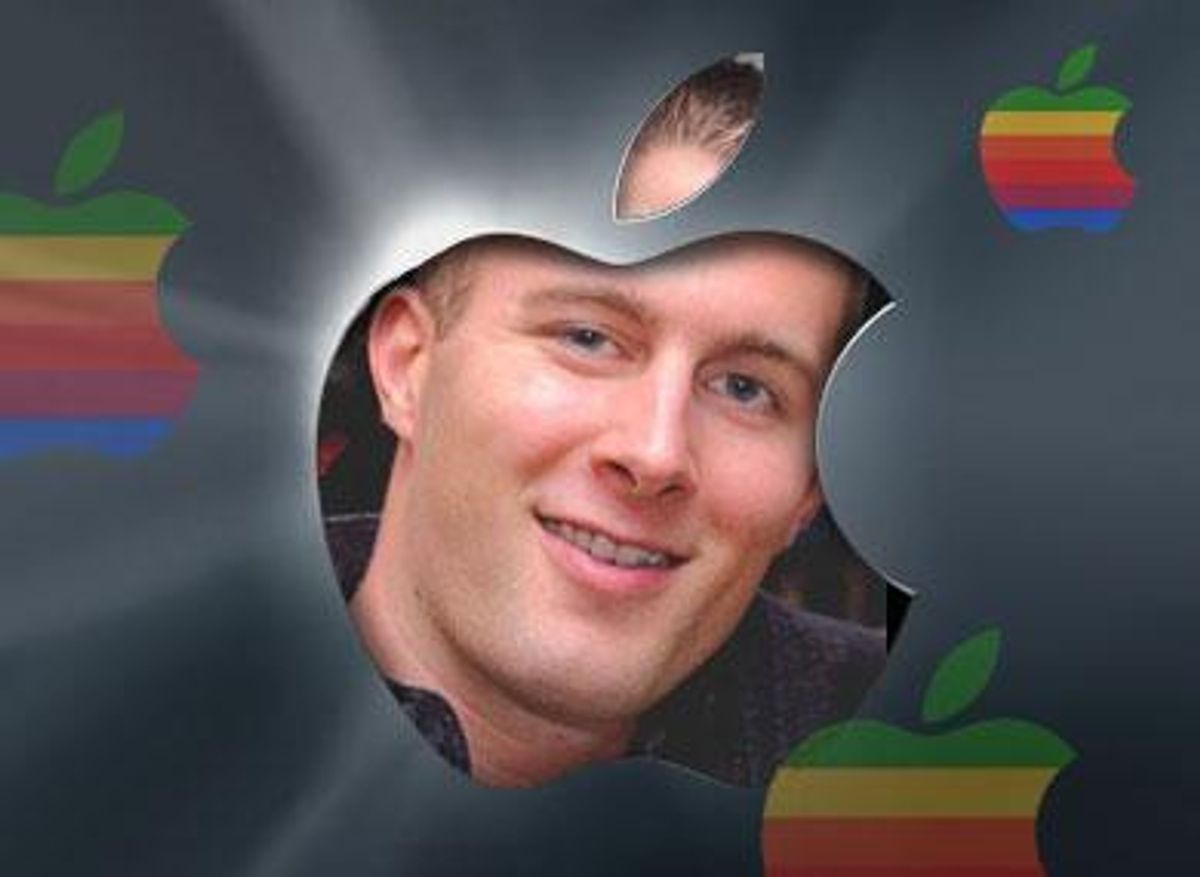
San Francisco's Steve Demeter has gone from Wells Fargo employee to independently wealthy game designer in less than a year thanks to a $5 iPhone game called Trism.
June 25 2009 12:00 AM EST
November 17 2015 5:28 AM EST
By continuing to use our site, you agree to our Private Policy and Terms of Use.

San Francisco's Steve Demeter has gone from Wells Fargo employee to independently wealthy game designer in less than a year thanks to a $5 iPhone game called Trism.
When the folks at Apple want to show someone how successful their iPhone App Store has become, one of the handful of people they point to is Steve Demeter.
That's because the San Franciscan has gone from low-level Wells Fargo employee -- he used to make ATM software for the banking giant -- to independently wealthy video game designer since the store launched last July thanks to a game he made in about 10 days.
The $5 title, a deceptively simple puzzler called Trism, was a hit from the start, with Demeter earning a cool $250,000 in profit after just two months of sales. The 30-year-old Ohio native shies away from saying how much he's made since, though he admits he "could very well live indefinitely off the interest [and] dividends" of his earnings and subsequent investments.
Demeter didn't make Trism so he could become a millionaire, though; he made it so he could make people smile.
"Don't get me wrong, I wanted to make money," he says, "but I also thought that if just 10 people buy [the game] and one of them says to me, 'I had a blast playing it,' that would be enough. That's all I really wanted."
He was hoping to make himself smile, too, since his previous attempt at creating a game ended in disappointment. Although the title, developed about a decade ago for the Nintendo Game Boy, caught the attention of a publisher, it never made it onto store shelves.
"That really shook me up," says Demeter, who started programming as a teen and made a name for himself in his 20s by translating various video games from Japanese to English. "Up until then it had all been about having fun. Then I saw this carrot dangling in front of me, and I wanted it. When I didn't get it, it hit me pretty hard. I didn't even play a game for two years after that."
Instead of making or even playing games, he "went to work for intentionally boring companies -- because I didn't want to put my passions out there again. I didn't want them to be judged."
Then Apple released the iPhone.
"I had gotten to a point where I asked myself, Do I really want to continue to neglect my passions? I liked my job -- the money was fine, the people were fine, my boss was fine -- but it was just a job. I felt like I had to put myself out there and see what happens.
"I could see an opportunity [in the iPhone]. I could see that there was a lot of potential for a guy with a good idea."
So in late 2007 he began brainstorming. "I went through idea after idea after idea," he says, estimating that he considered about 100 ideas before he had what he calls his "holy shit moment" -- the moment he came up with the idea that served as the basis of Trism.
Although it took Demeter three months to reach that moment, it took him just 10 days to complete a working demo of the title -- just in time for an important industry conference. Although no one at the event liked the game enough to publish it, "everyone I showed it to enjoyed playing it," he says. "So I took it to the people."
Late last February he posted a video of the game on YouTube and sent it around to a handful of review sites. Only one such site responded, but the resulting interview caught the attention of -- and spurred additional coverage in -- The New York Times and Wired.
A few months later Trism launched alongside the iPhone App Store, and, as Demeter deftly points out, "the rest is history."
"This whole experience has been a lot like coming out all over again," he adds. "It's been about finding myself [and] coming to grips with the world we live in."
In a way, he's still dealing with the latter. Case in point: An interview request from a writer working for Playboy prompted Demeter to ask his friends whether he should come out professionally.
"One friend in particular told me, 'You either need to come out or not do the interview at all,'" he says.
He followed that friend's advice but admits it was a struggle.
"I'm totally out in my private life, but I'm not sure about being out professionally," Demeter says. "I'm not worried about a backlash or anything like that, I'm just not sure that my being gay has anything to do with my business [Demiforce, www.demiforce.com ] and the kinds of games we're creating. It's not like we're making 'gay' games.
"I'm proud of the fact that I'm gay and that some of the guys who work with me are gay," he adds, "but at the end of the day all that matters is that we put stuff out there that's high-quality and that makes people happy."